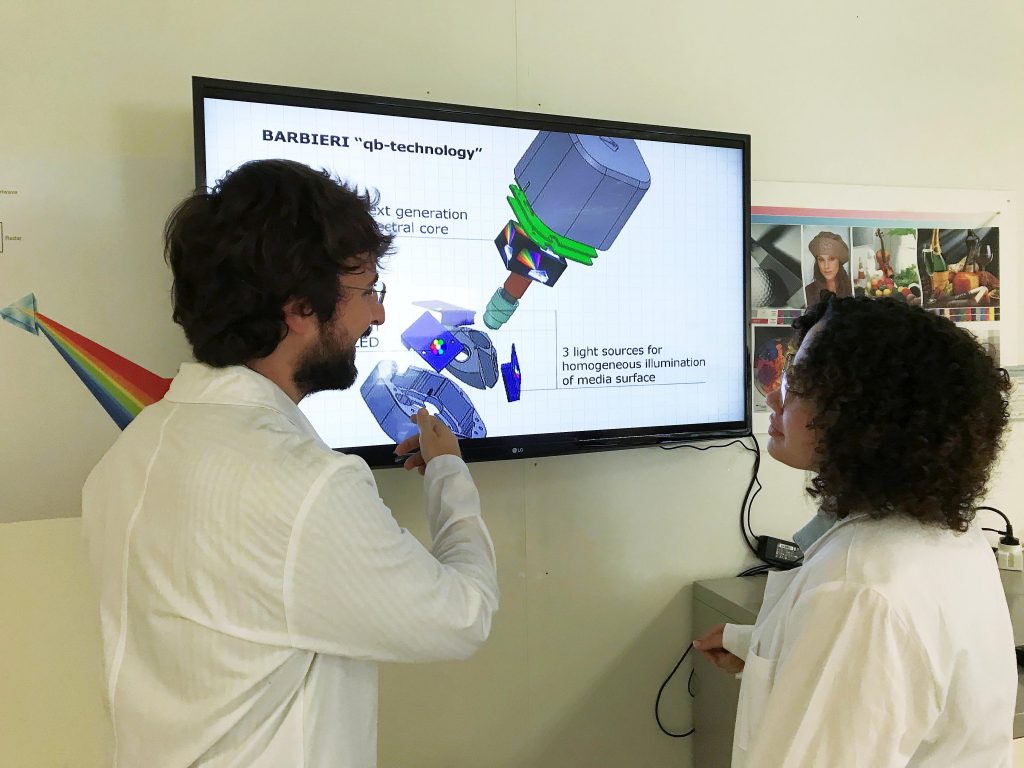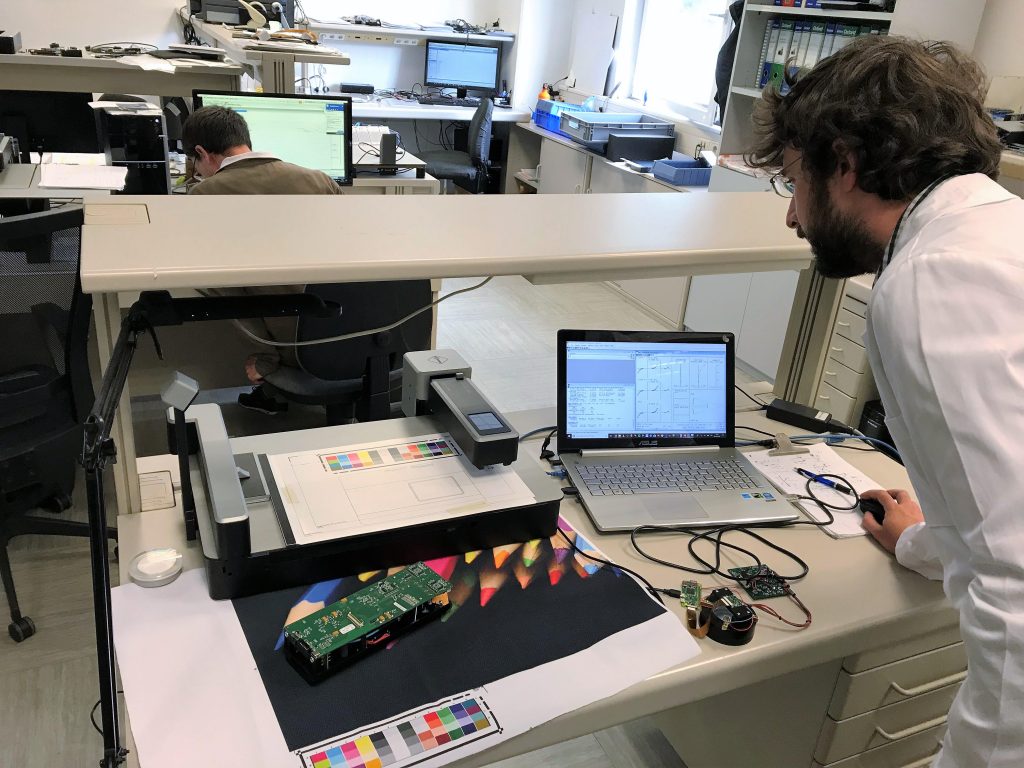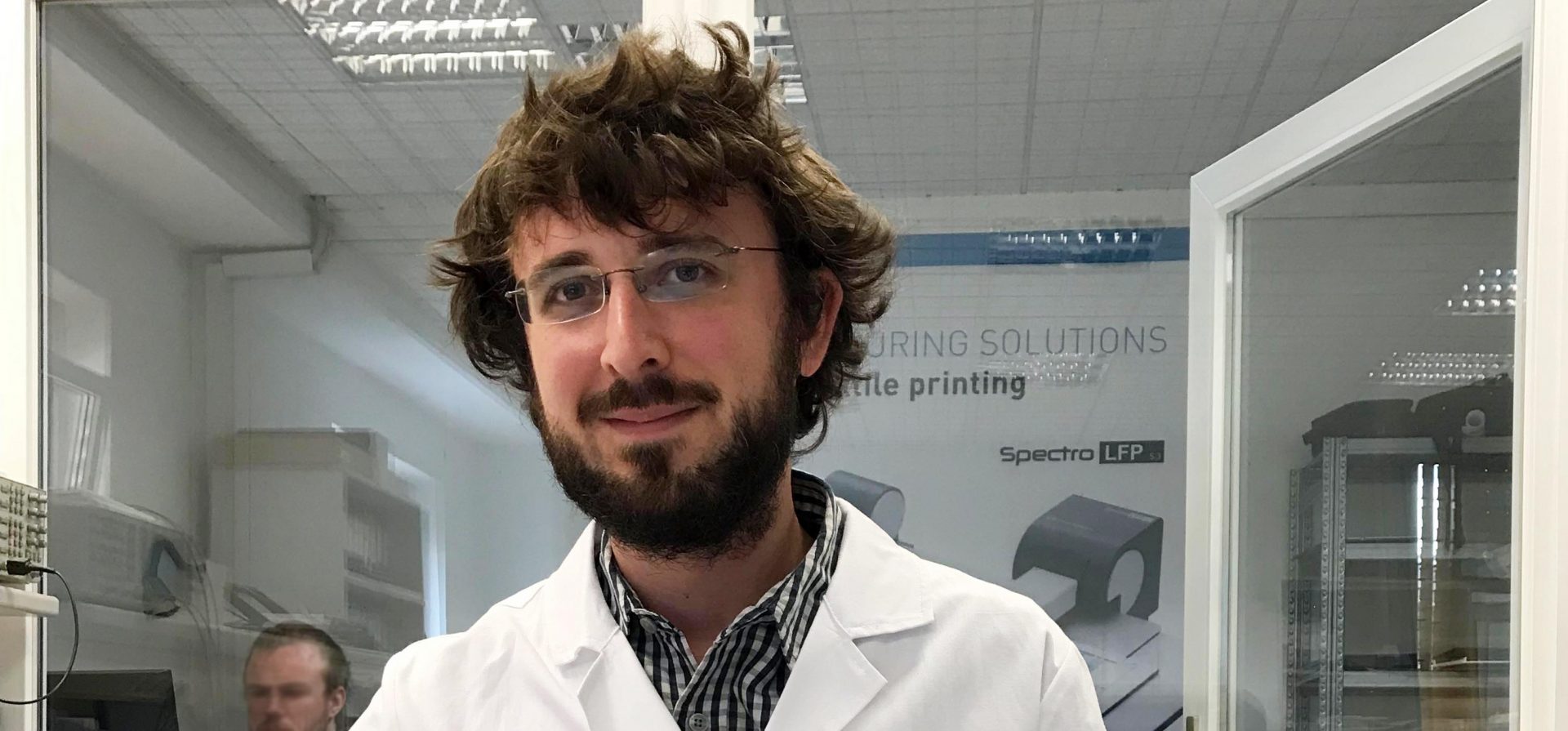From Milan to Bressanone
Michele Conni is from Milan, but since nearly two years he is living and working in Bressanone. As part of Barbieri Electronic’s Research and Development team he is continuously looking for innovative solutions to practical problems.
Michele Conni is a young Physics Engineer who took the challenge to work for a small South Tyrolean based but internationally orientated enterprise. We talked to him about his work and his future plans, which also include learning German.
Michele, you are part of Barbieri Electronic’s Research and Development team since December 2016. What is your job in this enterprise in Bressanone?
My official role is optical engineer apprentice. My main tasks consist in colorimetry, optical design and computer vision. In this context, I often find myself having to seek innovative solutions to practical problems, and this gives me the opportunity to study many different and avant-garde techniques, ranging from methods derived from physics, computer science and electronics. Inventiveness is a fundamental part of everyday work in our group: we discuss, we compare and try to continuously improve the precision and efficiency of our products, using both traditional tools and cutting edge applications.

Could you describe a specific project in order to make us understand better what your daily work life is like?
The apprenticeship I am undertaking includes the study for a Ph.D. in computer science at NTNU (Norges teknisk-naturvitenskapelige universitet, or Norwegian University of Science and Technology); to be more specific, I am part of the Norwegian Color and Visual Computing Laboratory, which deals with color measurement and analysis. My PhD project involves the study and development of new technologies for measuring the visual characteristics of surfaces, and specifically of texture appearance, i.e. all three-dimensional variation features that influence the visual characteristics of a material. The focus of my work is on fabrics, whose optical attributes are fundamental to many different production areas.
In the time I spent in Barbieri, I also worked on computer vision: I collaborated on the development of a camera, now fully integrated into a Barbieri measuring instrument, with the aim of automating the measurement process thanks to visual analysis and recognition algorithms. This topic is closely linked to the avant-garde subjects such as machine learning and artificial intelligence.
You are currently studying for a PH.D. Which studies did you do before?
I graduated with honors from the Politecnico di Milano in Physics Engineering in April 2016, with specialization in Nano-optics and Photonics. Although of increasing importance (e.g. the recent burst of optical fiber telecommunications and the expanding exploitation of lasers in industrial and medical areas), the application field of this discipline is in Italy still limited; in this context, having Barbieri Electronic a strongly international approach, it has allowed me to pursue a personal education path through a typology of initiatives that in most professional environments are scarce or lacking altogether. My education is still in progress, thanks to the doctorate project that I joined.
With working and studying I imagine you do not have a lot of free time. But if you have the chance, what do you do?
My family is in Milan, but in autumn my girlfriend will come to Bressanone; if possible, she will also join a Ph.D. course at the Free University of Bolzano-Bozen, with a focus on music education, whose faculty is located right in Brixen. She is in fact a violin graduate and a musicology graduate, and this path would be particularly interesting for her. In my free time, besides enjoying the beautiful mountains of the area, I study German, which I did not know at all before coming to South Tyrol, and I play the viola.




